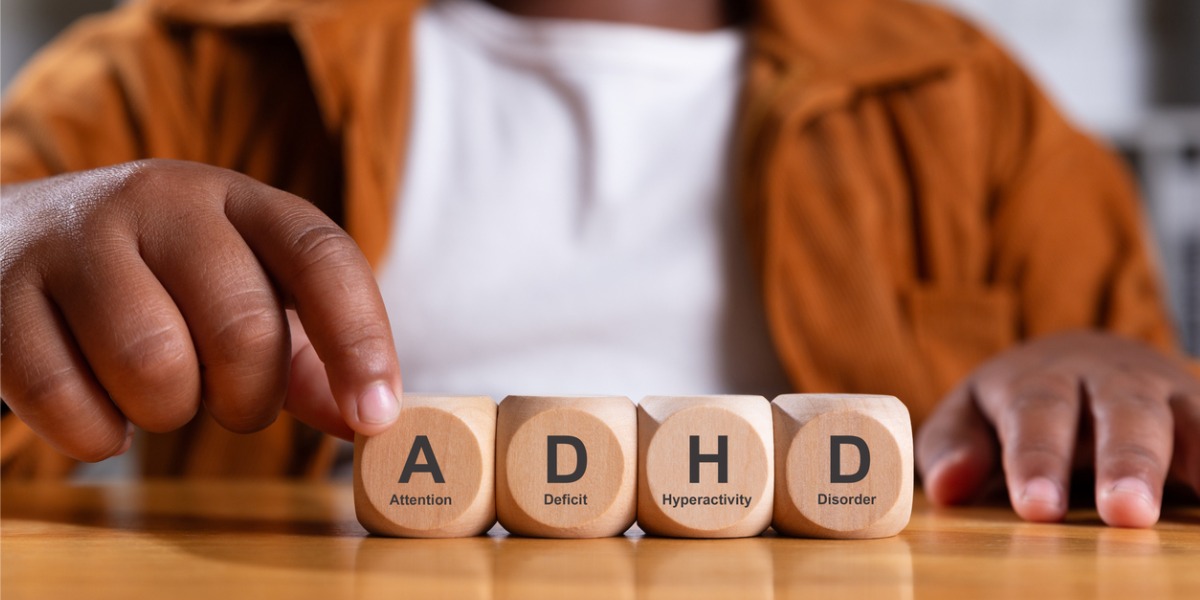When a child or teenager receives a diagnosis for attention-deficit hyperactivity disorder (ADHD), parents soon realize there are a wide range of options for ADHD treatment for teens. Whether the symptoms are mild or severe, ADHD can cause behavioral problems, impair academic achievement, and disrupt smooth daily function across a variety of life domains.
That’s why an accurate diagnosis and appropriate treatment matter: addressing and resolving issues associated with ADHD can improve life for children and teens with ADHD, and provide them the tools and skills necessary to succeed through adolescence and into young adulthood.
This article will review new research into the genetics of ADHD. Examining the genetic foundations of ADHA help behavioral health researchers and treatment providers gain a broader and deeper understanding of ADHD in order to predict who may develop ADHD and the best way to treat them, based on their genetic profile.
Before we discuss this new research, we’ll take a moment to define ADHD and report the prevalence of ADHD among children and teens in the U.S.
What is ADHD?
The American Psychiatric Association (APA) and the Centers for Disease Control (CDC) indicate that ADHD is a common disorder in children, characterized by inattention, hyperactivity, and impulsivity. ADHD most often begins in childhood, but can be diagnosed at any age, including adulthood. In all cases, ADHD symptoms must appear before age 12 and create significant disruption in more than one setting, such as at home and at school.
Mental health professionals recognize three primary types of ADHD:
- Predominantly inattentive presentation.
- Predominantly hyperactive/impulsive presentation.
- Combined presentation
To meet the clinical criteria for an ADHD diagnosis, symptoms must persist over a sustained period of time, with particular prominence in the six months before receiving a psychiatric assessment. In addition, symptoms that only appear in one situation do not meet criteria for diagnosis – as we mention above, symptoms must be present in more than one setting.
Prevalence of ADHD
In a paper published in 2024, researchers reviewed data from the 2022 National Survey on Drug Use and Health (2022 NSDUH) to determine the rates of ADHD among U.S. children and adolescents aged 3-17. Here’s what the data say:
- 7.1 million children received an ADHD diagnosis at any time in their lives. By age:
- 3-5: 274,000
- 6-11: 2.8 million
- 12-17: 4.0 million
- 6.5 million had an ADHD diagnosis in 2022. Among those:
- 3% male
- 5% female
- Severity among those with ADHD diagnosis in 2022:
- Mild: 41.9%
- Moderate: 45.3%
- Severe: 12.8%
That’s the latest data on ADHD among children and teens in the U.S. For parents looking for ADHD treatment for teens, it’s important to know there are millions of teens – and therefore millions of parents – that can relate to the process of diagnosis and finding treatment. Perhaps more important, however, is knowing that evidence-based treatment works, and a child or teen with ADHD can develop skills to manage their symptoms effectively.
With that in mind, let’s take a look at the research into the genetic component of ADHD, to better understand how we can tailor ADHD treatment to meet the specific needs of teens and their families.
Genes and ADHD: How Many Genes are Involved?
In the study “Genome-Wide Analyses of ADHD Identify 27 Risk Loci, Refine the Genetic Architecture and Implicate Several Cognitive Domains,” researchers used a genome-wide association study (GWAS) meta-analysis of ADHD that included data from 38,691 people with ADHD, with 186,843 without ADHD serving as a control group.
As of 2024, this is the largest GWAS study ever conducted on ADHD.
Note: a GWAS uses databases that contain the genome of millions of people, such as the Human Genome Project, to find specific genetic variations present in individuals with a specific disease or condition – in this case, ADHD – compared to individual without that specific disease or condition.
The research team identified 27 genes associated with ADHD. The genes were associated with reduced performance and/or deficits in seven domains related to cognition:
- Working memory
- Facial memory
- Nonverbal reasoning
- Spatial reasoning
- Attention
- Verbal reasoning
- Standardized reading test scores
They identified genes in the following brain areas:
Frontal cortex:
- These variants may contribute to symptoms associated with motor control, reward, and executive function observed in children and teens with ADHD
- The frontal cortex is also involved in attention and working memory, which are both impacted by ADHD
Midbrain:
- These variants may contribute to symptoms associated with movement and processing reward.
In addition, around 90 percent the genes they identified as associated with ADHD were also associated with other psychiatric disorders, including:
- Major depressive disorder (MDD): 96% shared variants
- Autism spectrum disorders (ASD): 69% shared variants
- Insomnia: 62% shared variants
- Schizophrenia (SCZ): 56% shared variants
Previous data shows that across the U.S. population, ADHD has a heritability rate of 74 percent. This means genetic factors account for 74 percent of ADHD diagnoses nationwide, with factors like environment and individual experience accounting for the remaining 26 percent.
Effective ADHD Treatment for Teens
The current standard of care for ADHD for teenagers involves a combination of psychotherapy, medication, parent training, classroom supports/accommodations, peer support, education, lifestyle changes, and help with organizational skills.
Data published by the Centers for Disease Control (CDC) shows the following rates of treatment among youth 13-17 with a current diagnosis:
- Taking medication: 53.6% total
- Children 3-5: 23.6%
- Children 6-11: 56.9%
- Pre-teens/teens 12-17: 43.4%
- Engaged in behavioral therapy in past year: 44.4% total
- Children 3-5: 51.5%
- Children 6-11: 48.2%
- Pre-teens/teens 12-17: 41.0%
- Received any professional treatment or counseling in past year: 58.3% total
- Children 3-5: 57.4%
- Children 6-11: 60.0%
- Pre-teens/teens 12-17: 57.1%
Analysis of those figures by CDC researchers indicates that around 30 percent of youth didn’t receive any treatment at all for ADHD and around 32 percent received medication and therapy/counseling. The total number of youth engaging in behavioral treatment in 2022 was 2.8 million, an increase of 12 percent over the seven-year period from 2016-2022.
Can Understanding the Genetics of ADHD Help Improve Treatment?
Yes.
First, understanding the heritability of ADHD can help providers arrive at an accurate diagnosis sooner rather than later, since we know that heritability of ADHD is high. If a patient indicates a family history of ADHD, providers can focus on the presence of absence of ADHD-related symptoms when conducting a full psychiatric evaluation.
Second, understanding genetics can help kids and families understand the medical nature of the disorder. This can help reduce stigma around diagnosis and treatment of ADHD. If a child understands they have an inherited medical condition, they’re less likely to develop self-stigma or shame around ADHD. They’ll also be more likely to fully engage in treatment, which can improve treatment outcomes, quality of life, and overall wellbeing.
Finally, we’re entering a new age of medical technology, in which our rapidly advancing knowledge of the human genome plays – and will continue to play – a large role. Our DNA controls everything that happens in our body. Gene therapy leverages this fact by fixing genes that don’t work correctly, replacing genes that are damaged/malfunctioning, and stimulating the immune system when it doesn’t recognize harmful cells when it should.
There are around a dozen gene therapies approved by the Food and Drug Administration (FDA). Clinical trials on close to ten additional therapies – including one for inherited neurological disorders – are currently underway.
If and when medical scientists develop a viable, evidence-based, effective gene therapy for ADHD, we’ll review the data. If the treatment meets our high standards, we’ll add it to our toolbox of evidence-based treatments and share the news here on our blog.


